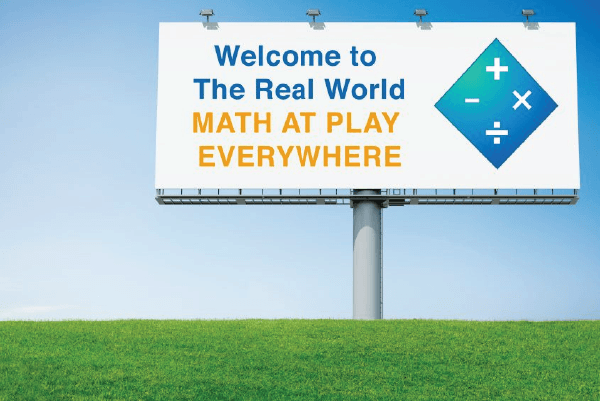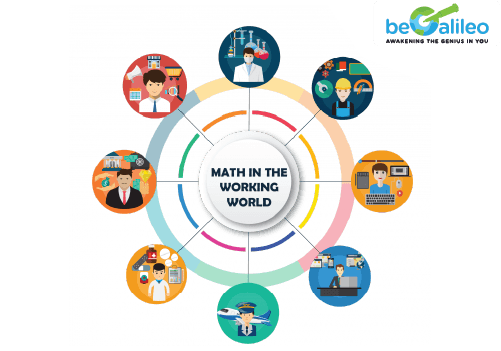
" If I were again beginning my studies, I would follow the advice of
Plato and start with mathematics.
— Galileo Galilei
As educators at beGalileo, we often encounter inquiries from our students such as “Why do I need to learn Geometry, Trigonometry, or Statistics? Where will I use these subjects? Why should I study them?” These questions become increasingly frequent as students progress through their grades. However, at beGalileo, we make a deliberate effort to address these questions from the very beginning. In fact, we proactively explain the relevance of each concept, emphasizing its practical applications in the real world. It is our responsibility as math educators to convey to students the importance of learning Math for their future success in any career they choose to pursue
Unlock Your Child's Math Potential with beGalileo!

🚀 Transform their math skills with personalized, 1-on-1 classes.
🧮 Experience integrated math and coding for real-world application.
👦 See your child excel—start with a Free Trial Math Class today!
It’s really hard to think of any job where math isn’t needed. Math is like a special language that helps us solve problems and understand numbers. We use math in everyday activities, whether it’s measuring ingredients in cooking, managing finances, interpreting data, or even navigating through daily tasks, math is an essential skill that finds its applications in virtually every field and profession. Even if you don’t see it right away, math is useful in many different jobs. Math is all around us, and learning it helps us think and solve problems better in any job we choose.
Let us see how Math is used in various professions –

- Computer Engineers: Computer engineers use math in various aspects of their work, including designing algorithms, analyzing complex systems, optimizing code efficiency, and working with digital signals and data.
- Doctors and Medical Practitioners: Medical professionals use math for dosage calculations, medical measurements, interpreting test results, understanding medical statistics, and analyzing medical research data.
- Architects: Architects use math to calculate measurements, create blueprints, ensure structural integrity, and estimate material quantities. They apply geometry, trigonometry, and algebra to design buildings and ensure proper scaling and proportions.
- Farmers: Farmers use math for various purposes, such as calculating crop yields, determining optimal planting and harvesting times, managing budgets, analyzing soil composition, and tracking livestock populations.
- Entrepreneurs: Entrepreneurs utilize math in financial planning, budgeting, analyzing market trends, calculating costs and profits, assessing investment opportunities, and making data-driven business decisions.
- Financial Analysts: Financial analysts use math extensively to analyze financial data, create financial models, evaluate investment opportunities, perform risk assessments, and make informed recommendations on investments and financial strategies.
- Economists: Economists employ math and statistical analysis to study economic trends, model economic systems, analyze market behavior, forecast economic outcomes, and assess the impact of policies.
- Designers: Designers use math in various fields such as graphic design, industrial design, and fashion design. They apply geometry, proportions, patterns, and symmetry principles to create aesthetically pleasing and functional designs.
- Chefs: Chefs use math for recipe conversions, portion sizing, ingredient measurements, and calculating cooking times. They apply ratios, fractions, and mathematical concepts to ensure accurate and consistent culinary results.
- Artists: Artists use math in areas like perspective drawing, composition, symmetry, and color theory. They apply mathematical principles to create visually appealing artwork and achieve desired artistic effects.
- Musicians: Musicians use math in rhythm, timing, scales, and chord progressions. They apply mathematical concepts to understand musical notation, analyze musical structures, and create harmonious compositions.
- Dancers: Dancers use math for counting beats, timing movements, coordinating choreography, and understanding patterns and spatial relationships in dance routines.
- Home makers: Home makers use math in budgeting, managing household finances, calculating measurements for home improvement projects, and planning daily schedules and routines.
- Accountants: Accountants use math for financial calculations, auditing, budgeting, tax preparation, and financial analysis. They apply mathematical principles to ensure accuracy and compliance with financial regulations.
- Pilots: Pilots use math for navigation, flight planning, fuel calculations, weight and balance assessments, and weather analysis. They employ mathematical formulas and calculations to ensure safe and efficient flights.
- Lawyers: While math may not be as central to their work as it is for professions like engineering or finance, mathematical skills still play a role in various aspects of legal practice. Lawyers often need to analyze and interpret financial documents, such as tax returns, business records, and financial statements. They may also need to calculate damages or compensation in certain legal cases, such as personal injury or financial disputes. Additionally, understanding statistics and probability can be helpful in fields like intellectual property law or litigation involving scientific evidence.
- Researchers and Scientists: Researchers and scientists across various fields, such as physics, chemistry, and biology, use mathematical tools extensively. They apply mathematical modeling, differential equations, and statistical analysis to understand complex phenomena, make predictions, and interpret experimental data.
- Actuaries: Actuaries use advanced mathematical techniques to assess and manage risks in insurance and finance. They analyze data, develop probability models, and use calculus to determine insurance premiums, pension plans, and other financial products.
It is challenging to think of a profession that does not require any form of math, as math is an integral part of numerous industries and occupations. Even in professions that may not seem math-intensive on the surface, basic mathematical skills are often necessary for everyday tasks. For instance, communication skills, time management, budgeting, and problem-solving all involve mathematical elements to varying degrees. Math provides a foundation for critical thinking, logical reasoning, and quantitative analysis, which are valuable skills in almost any profession. While the level of mathematical complexity may vary, having a fundamental understanding of math can greatly benefit individuals in their personal and professional lives.
